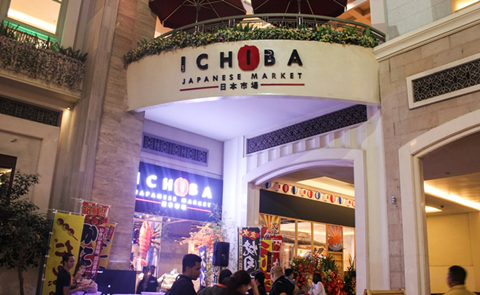Recently, in the same week that Japan’s biggest bank, Mitsubishi UFJ Financial, announced it was creating 180 new investment banking jobs in London in the hope of boosting income outside Japan, Westfield revealed its plans to open Europe’s largest Japanese food hall at its west London shopping centre.

Complete with a sake bar, a noodle bar and a traditional Japanese bakery, the food hall will form part of Westfield’s £600m expansion and enhanced food and beverage offer. Japan’s influence on the UK, culturally and financially, cannot be ignored and Japanese capital is set to become a global player.
According to the latest research from CBRE, Japanese outbound real estate investment rose by 23% year on year to $1.3bn (£975m) in the first half of 2017. While the majority of this targeted the Americas, 20% was allocated to EMEA – and this figure is expected to rise as institutional investors look to diversify. I visited Tokyo recently and there is a measured and strategic focus on outbound investment.
Capital held by pension funds, insurance companies and sovereign wealth funds globally, for investment in all assets, has grown strongly over the past decade and now stands at $94trn. We estimate that $8.5trn of this is targeting real estate.

This pool of institutional equity is continuing to grow, driven by the growth of the middle class. This group is forecast to encompass 3.84 billion people by 2020, 88% of whom will be living in Asia. Moreover, the global average allocation to real estate is forecast to grow from 9% in 2017 to 10.1% in 2020, fuelled by an increasing preference for real estate by Asian institutions.
Allocations to real estate by these institutions are grossly underweight when compared with the global average. Asian capital has typically focused on its domestic market but investors are now starting to look at the global markets.
Japanese investment could hit $15bn
While we have seen a steady flow of capital from Hong Kong, China and Singapore over the past 18 months, the Japanese still have significant capital to deploy.
There is currently close to $1.4trn sitting in Japanese pension funds, with no allocation to global real estate. Due to a negative interest rate, limited, low-yielding stock locally and the memories of the asset price collapse 20 years ago now fading, we are starting to see an increased appetite for offshore real estate.
In addition to direct asset allocation, we expect that much of this outbound real estate investment will be allocated indirectly, through investment funds and other vehicles. As such, indirect investment from Japan could grow to more than $15bn in the next few years and we are seeing more Japanese companies forming real estate funds to target overseas investment.
The UK remains an obvious target for Japanese capital
The UK, and London in particular, remains an obvious target for Japanese capital. Increasingly attractive relative value compared with other European markets, along with healthy medium-term economic fundamentals – despite short-term political uncertainty – continue to make it attractive.
It remains one of the largest and most liquid real estate markets in the world – an important consideration for Asian investors and a credential that provides a significant competitive advantage. The historic trend of partnering with best-in-class local operators is already evident with Japanese investors and real momentum should develop in 2018.
As in many of the major global markets, Japanese investors face stiff competition for assets in London given the current strength of demand for commercial real estate. However, because London ticks so many boxes for investors, we expect Japanese institutions to be more active over the coming years. Next year certainly promises to be fascinating as more international sources of capital appear.





























No comments yet